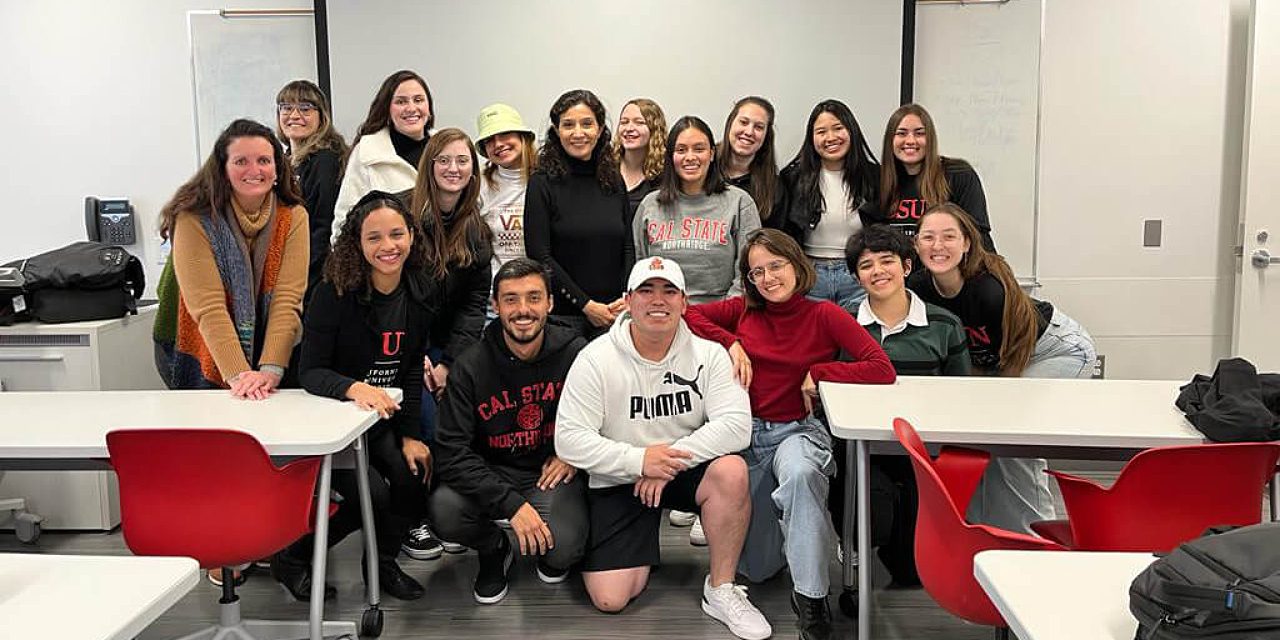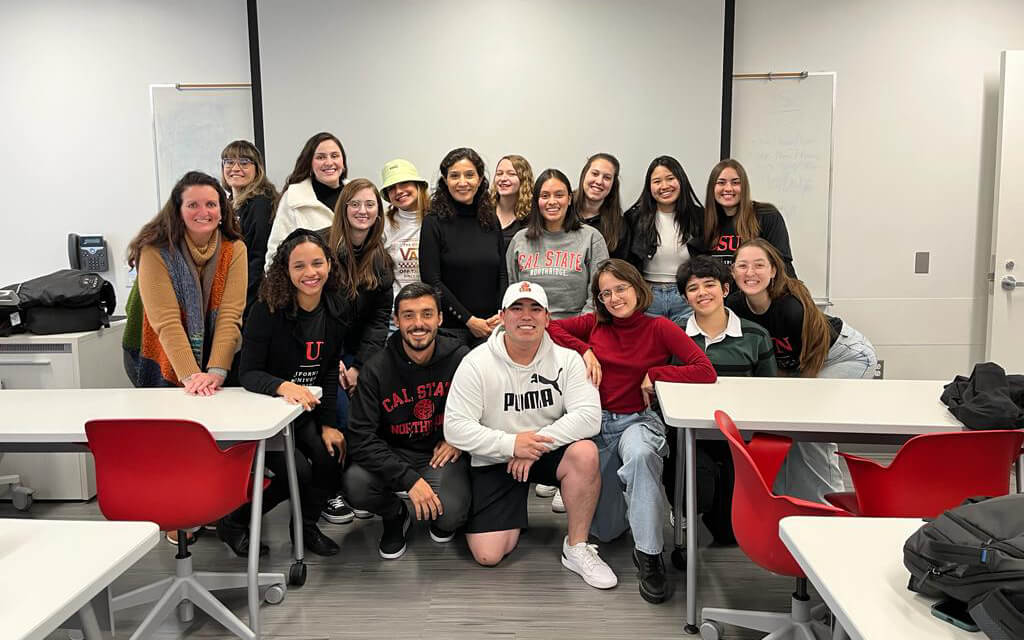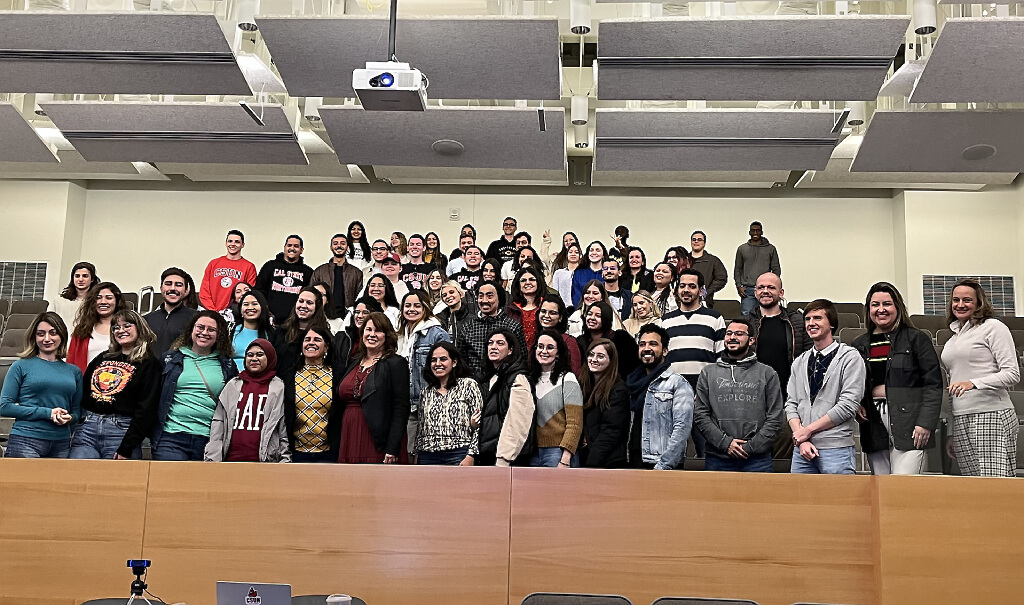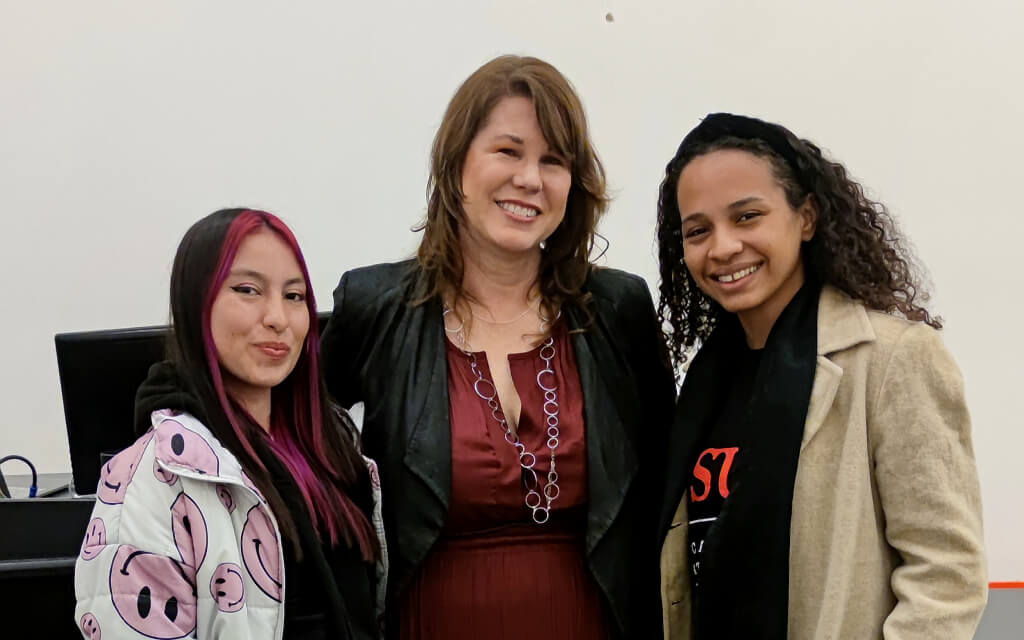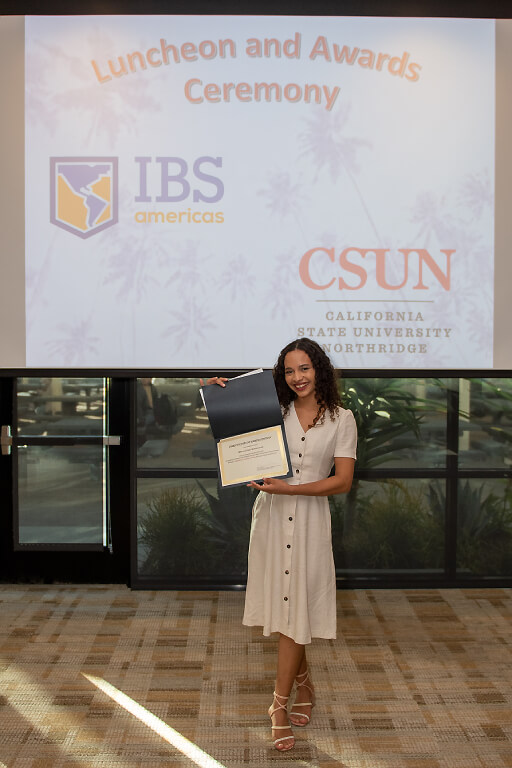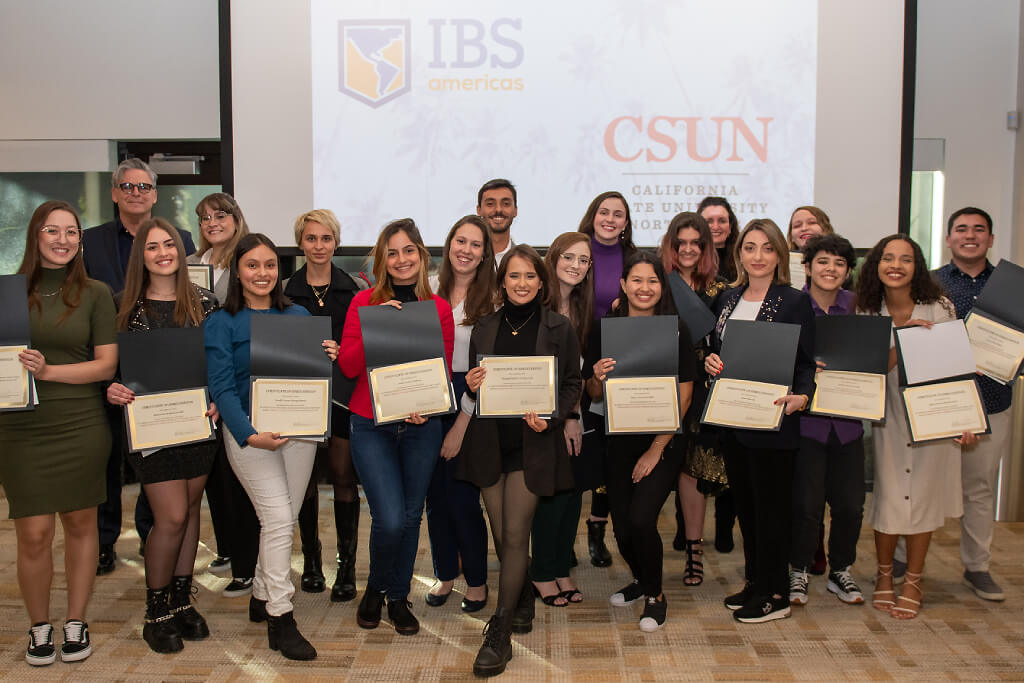Do you want to study at CSUN, but still have questions about this international experience? Check out the chat with our student Rebeca Martins.
1. What motivated you to take a course abroad? How did you learn about IBS Americas?
I have always dreamed of studying abroad and having an international career. To achieve this goal I knew that I needed to have some experiences such as having proficiency in the English language and the opportunity to have on my resume a program compatible with my academic background. So I constantly searched for courses on sites like Estudarfora.org, selection processes that matched the profile I was looking for.
And so I found an open application process for IBS Americas scholarships to California State University, Northridge that united the dream of studying abroad while participating in an executive program that would add to my plan to develop an international career.
2. How did you choose the course and the university? What factors contributed to your decision?
I chose IBS Americas because it was not a simple exchange. The program brought together my desire to improve my knowledge in the English language, the possibility of experiencing a cultural immersion, the opportunity to learn topics related to my area of work and networking with people of different nationalities.
As my area of activity and training is Communication with a qualification in Public Relations, I was delighted with the contents provided by the Communication, Design and Innovation program and enrolled in the selection process for CSUN, located in Los Angeles, a literal cinematic city.
3. What were the main challenges you faced being in another country, with another language and colleagues of different nationalities?
Los Angeles by itself is already a cosmopolitan city so there is exposure to different cultures just by being in a multicultural environment. So that was my main challenge. Sometimes, I was in predominantly Hispanic or Korean places, for example, and I always noticed different languages and habits. It was a challenge, but it was also one of the best experiences about studying in Los Angeles.
In the classroom, these cross-cultural exchanges were also present. In my class, we had students from Costa Rica, Peru and Georgia. Each of us shared the impressions of the different countries represented there, which enriched the discussions of the classes taught. However, I have met people from literally every continent. This also helped in my ability with the language, because the language common to all of us was English.
4. How do you assess the quality of teaching, infrastructure and resources offered by the university?
The experience in the day-to-day classes was exceptional. Starting with the quality of the curriculum with linear and very well interconnected content taught by professors working in the labor market who always brought their own cases as professionals for demonstration during classes.
As for structure, studying at CSUN is like an American movie. The classrooms are equipped with technological materials, the auditoriums have all the necessary resources for a good lecture, as well as courts for various sports and the library is a dream!
5. What about the routine, how did you organize studying and enjoying your free time? What did you do during those times?
Despite the intense study routine, the way in which the workload was distributed allowed us to get to know part of the campus and explore Los Angeles and its surroundings during the weekends.
One of the positives of studying in Los Angeles is the extensive list of possible tourist activities in the city. And not only that, the availability of free tours takes your breath away. I was able to visit Santa Monica, Malibu, the Hollywood Walk of Fame and the Griffith Observatory.
6. How were the experiences of lectures and/or visits to companies?
Unfortunately, during my program we did not have visits to companies due to the COVID-19 pandemic, but the lectures were impactful.
The first lecture was with Kimberly Hicks who brought her experience working at companies such as HANG and Disney, and how she applied concepts such as Design Thinking in her work.
Another participation that was aided by CSUN’s technology-enabled auditorium was the lecture with Kaori Yamada. For personal reasons, she was unable to attend in person, however the space available at CSUN allowed the full experience to be equated to an in-person lecture. Kaori, through her professional trajectory, inspired us and shared how she has developed Social Responsibility at U.S. Bank.
The speakers’ lectures made me leave the auditorium full of ideas to apply in my professional career and were undoubtedly crucial to the excellent experience I had at CSUN.
7. Were you able to network during the course? Could you share some interesting experiences?
Networking goes beyond exchanging contacts to possible professional connections. To this day I talk to my classmates, we exchange job vacancy information and we also create friendship ties.
However, for me the most interesting experience was the openness that professors and coordinators made available in creating communication bridges like LinkedIn to keep in touch.
8. What were the key skills you developed during the course?
Among the skills I had to develop from the moment I received the letter of approval from the university are: problem-solving ability, time management, teamwork and of course the improvement of speech in the English language.
I am from the outskirts of São Luís do Maranhão (Brazil) and fulfilling my dream of studying abroad helped me to exercise many of these. Through a donation campaign conceived by me and supported by hundreds of people who also believed in this project I was able to reach the United States and represent the strength of black and northeastern Brazilian women.
During the course, given the hectic routine, I had to maintain the organization and deliver all work within the established deadlines always communicating with my team and delegating functions. All this experience allowed me to increase my confidence and fluency in the English language.
9. How do you think this international experience will contribute to your career?
My plan to have an international career took even more shape with the experience of studying at CSUN. In addition to the knowledge passed on that I am already applying today in some personal work projects, I was also able to strengthen a network of relationships that are of paramount importance to my mentoring to achieve this goal.
10. What message would you leave for other students and professionals who wish to take a course abroad with IBS Americas?
Taking a course abroad is a turning point in the career of the professional who wants to stand out in the job market as globalized as the one we are experiencing. The support IBS Americas provides starts from the moment we apply for the scholarships with the details of the courses and what to expect from each of them. After approval, the IBS Americas partnership guides you in the process of obtaining the appropriate American visa for the course, if the program chosen is in the United States.
With IBS Americas you will make the best exchange choice for your career, because besides improving your English language performance, you will be learning refreshing topics in the chosen area, networking, getting to know amazing cities and living the best investment not only in your professional career but also in your personal life. It was so for me, and I have no doubt that it will have the same impact on you!


